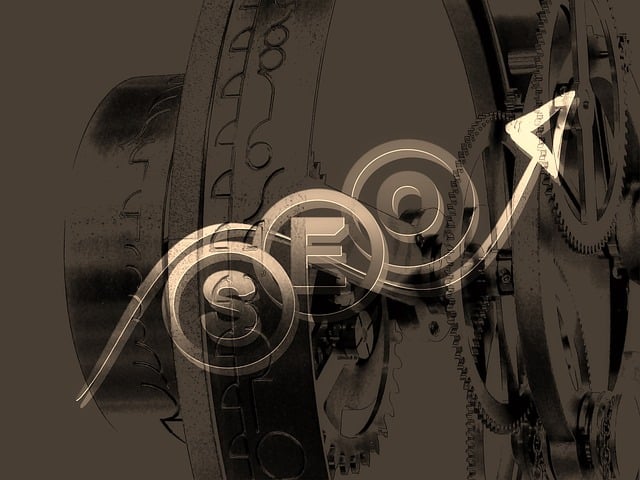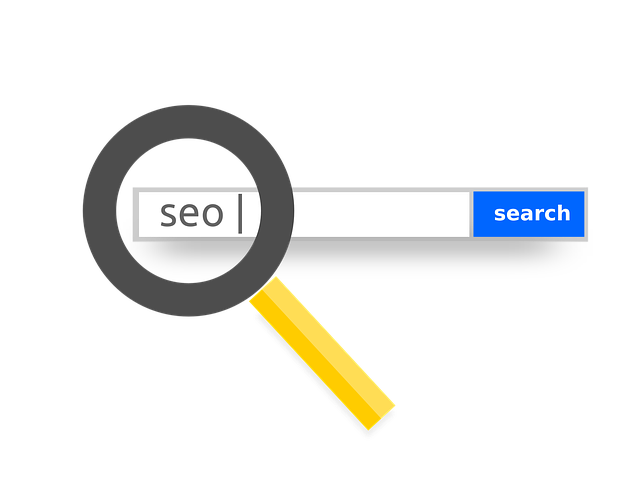In today's competitive e-commerce landscape, success hinges on online visibility and customer reach, where a dedicated SEO Agency for E-commerce Websites plays a crucial role. These experts optimize digital storefronts through keyword research, content creation, site structure improvements, mobile responsiveness, and schema markup to boost search engine rankings, attract organic traffic, and drive conversions. They focus on factors like site speed, meta titles, descriptions, and URL optimization, along with strategic link-building for backlinks. By implementing local SEO strategies, optimizing for mobile devices, and tracking key metrics like organic traffic, conversion rates, and average order value, these agencies ensure e-commerce websites convert visitors into customers in a dynamic digital market.
In the digital marketplace, an e-commerce website’s success hinges on robust search engine optimization (SEO). As a leading SEO agency specializing in e-commerce platforms, we guide businesses through the intricate landscape of online visibility. This article is a comprehensive toolkit for maximizing your e-commerce potential, covering everything from foundational strategies like keyword research and on-page optimization to technical intricacies such as site architecture and mobile responsiveness. By implementing these principles, you’ll attract relevant traffic, enhance user experience, and drive conversions, solidifying your online presence with a reliable SEO agency dedicated to e-commerce success.
Understanding E-commerce SEO: The Foundation of Online Success

In the dynamic landscape of e-commerce, success isn’t just measured by the quality of products or the ease of navigation; it’s heavily influenced by online visibility and customer reach. This is where Professional E-commerce SEO steps in as the foundation for achieving sustainable growth. An SEO Agency for E-commerce Websites plays a pivotal role in optimizing digital storefronts to rank higher on search engines, attract more organic traffic, and ultimately drive conversions.
Effective E-commerce SEO involves a multifaceted approach that includes keyword research, strategic content creation, site structure optimization, and ensuring mobile responsiveness. By understanding user behavior and search engine algorithms, these agencies enhance the online presence of e-commerce sites, making them more discoverable to potential customers. This strategy not only boosts sales but also fosters long-term brand credibility in a highly competitive digital market.
Key Factors: What Makes a Website SEO-Friendly for E-commerce?

A SEO Agency for E-commerce Websites understands that creating an SEO-friendly online store isn’t just about appearance; it’s a strategic process that involves several key factors. First and foremost, site speed is critical. Today’s shoppers expect instant results, so a well-optimized e-commerce website loads quickly across all devices. This ensures a positive user experience and encourages higher conversion rates.
Product pages must also be meticulously crafted. Clear, concise, and compelling meta titles and descriptions, along with optimized product URLs, help search engines understand the content of each page accurately. Additionally, leveraging schema markup for products enhances search engine visibility by providing structured data that highlights key details like pricing, availability, and reviews.
Keyword Research: Unlocking the Power of Relevant Traffic

Keyword research is a cornerstone of successful e-commerce SEO, acting as the key to unlocking relevant traffic and boosting sales. A top-tier SEO Agency for E-commerce Websites understands that choosing the right keywords can make or break an online store’s visibility and performance. By delving into competitive analysis and exploring customer search behavior, these agencies uncover valuable insights into what terms potential customers are using to find products or services like theirs.
This strategic approach involves identifying long-tail keywords that accurately reflect user intent, targeting niche audiences, and avoiding overly broad terms with high competition. Through sophisticated tools and expert analysis, an SEO Agency can pinpoint the most effective keywords, ensuring that e-commerce websites rank higher in search engine results pages (SERPs). This direct correlation between relevant keywords and improved rankings translates into increased organic traffic, higher conversion rates, and ultimately, greater revenue.
On-Page Optimization: Crafting High-Converting Content

E-commerce websites, much like physical stores, need a strategic approach to attract and convert customers. On-Page Optimization is a critical aspect of this strategy, focusing on crafting content that not only engages but also aligns with search engine algorithms. A top-notch SEO agency for e-commerce websites understands the art of transforming each page into a high-converting landing spot.
This involves optimizing product titles and descriptions to include relevant keywords, ensuring they accurately reflect what customers will find on the page. Additionally, creating compelling meta tags, including meta titles and meta descriptions, helps in capturing the essence of the content while enticing users to click through from search engine results pages. High-quality, optimized content not only improves visibility but also enhances user experience, encouraging visitors to explore further and increasing the chances of conversions.
Technical SEO: Building a Strong Site Architecture

A robust site architecture is a cornerstone of Technical SEO for e-commerce websites, especially when managed by an expert SEO agency. It involves creating a clear and intuitive sitemap that facilitates both user navigation and search engine crawling. Well-structured categories, subcategories, and internal linking ensure that products are easily discoverable, improving user experience and boosting search rankings. An efficient architecture also allows search engines to index your site faster and more accurately, leading to better visibility in organic search results.
For an e-commerce platform, this translates into streamlined shopping journeys. Customers can effortlessly browse through relevant product groups, leading to higher conversion rates. Additionally, a well-organized structure helps in implementing effective content strategies. An SEO agency for e-commerce websites can optimize product pages, category descriptions, and filters to align with target keywords, thereby enhancing the site’s overall search engine optimization.
Optimizing for Mobile: Ensuring a Seamless Shopping Experience

In today’s digital era, having an e-commerce website that isn’t optimized for mobile is akin to having a storefront that’s hidden from view—a significant missed opportunity. With a vast majority of online shopping happening on smartphones and tablets, a seamless mobile shopping experience is crucial. An SEO agency specializing in e-commerce websites understands this imperative and focuses on making sure your site is responsive, fast loading, and easy to navigate on all devices. This means ensuring that product pages, search functions, and checkout processes are designed with the mobile user in mind, thereby enhancing user satisfaction and driving conversions.
Beyond functionality, optimizing for mobile also involves leveraging mobile-specific SEO strategies such as Accelerated Mobile Pages (AMP) technology and rich snippets to improve loading speeds and search visibility. These tactics not only enhance the user experience but also help e-commerce sites rank higher in mobile search results, further increasing their chances of attracting and converting potential customers.
Leveraging Local SEO for E-commerce Businesses

In today’s digital era, e-commerce businesses must go beyond national borders to reach their target audience. Leveraging Local SEO strategies is crucial for any online store aiming to dominate local markets and attract in-region customers. An SEO Agency for E-commerce Websites plays a pivotal role here, optimizing website content with location-specific keywords to ensure visibility on local search engines. By integrating this approach, businesses can enhance their online presence, enabling them to compete effectively within their geographical niche.
Local SEO isn’t just about changing tactics; it’s also about enhancing the user experience. For instance, implementing schema markup with location data allows search engines to understand and display business information accurately in local pack results. Additionally, encouraging online reviews from satisfied customers in specific regions can significantly boost a brand’s credibility and trustworthiness among potential local buyers.
The Role of Backlinks in E-commerce SEO Strategy

Backlinks play a pivotal role in shaping the success of any e-commerce SEO strategy. These links, earned from reputable and relevant external sources, act as digital endorsements, boosting a website’s credibility and visibility in search engine results. When a highly authoritative site with content related to your niche links to yours, it signals to search engines that your e-commerce platform offers valuable information. This positive signal strengthens your site’s authority, which is crucial for ranking higher among competitors in the online marketplace.
An SEO agency specializing in e-commerce understands this dynamic and employs strategic link-building techniques tailored to the industry. By acquiring backlinks from influential blogs, forums, and industry-specific directories, these agencies enhance their clients’ online presence. Well-placed backlinks not only drive organic traffic but also foster brand awareness, ensuring that potential customers discover your e-commerce website seamlessly.
Measuring Success: Analyzing Key E-commerce SEO Metrics

Measuring success in e-commerce SEO involves analyzing key metrics that reflect the health and performance of your online store. A top-tier SEO Agency for E-commerce Websites will focus on tracking metrics like organic traffic, conversion rates, and average order value to gauge the effectiveness of their strategies. Organic traffic, driven by high-ranking product pages and targeted keywords, indicates effective content optimization and keyword research.
Conversion rate optimization (CRO) is another critical metric. By analyzing the percentage of visitors who complete a desired action—whether it’s making a purchase or filling out a form—an SEO agency can identify areas for improvement on your e-commerce site. Moreover, tracking average order value provides insights into customer spending habits and helps gauge the success of upselling and cross-selling strategies.
